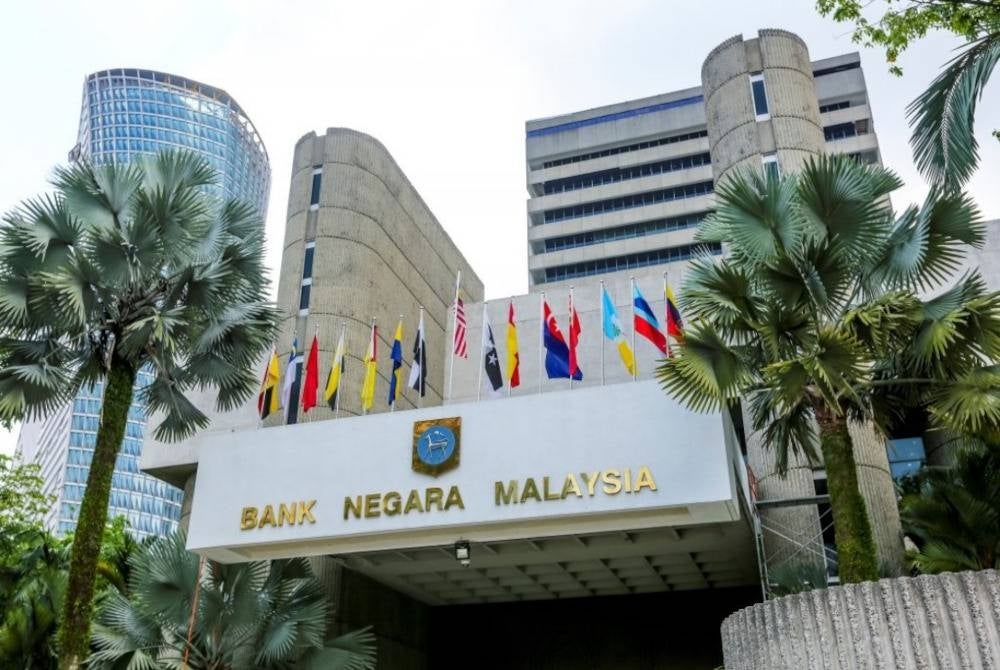Continuous OPR increase slows economic development, says economist

KUALA LUMPUR - The continuous increase in the overnight policy rate (OPR) will cause slower domestic economic development despite it being meant to ease the inflation rate, said Putra Business School Associate Professor Dr Ahmed Razman Abdul Latif.
He said a decline in the inflation rate for nine consecutive months was due to careful consideration by Bank Negara Malaysia (BNM) in setting the OPR.
"Theoretically, when the OPR is raised continuously, it will put pressure on inflation to come down. The increase in OPR to the three per cent benchmark has proven to be successful in lowering the inflation rate to 2.8 per cent.
"An OPR which is too low will cause the economy to ‘overheat’, meaning there is a lot of spending and selling activities which can cause inflation to rise sharply,” he said during Bernama TV’s "Malaysia Petang Ini” programme today.
Razman explained that the OPR is used to contribute towards economic stability and is part of the monetary policy under the purview of BNM.
He also said there is another method to deal with inflation and the rising cost of living, which is through the Finance Ministry's fiscal policy by providing cash assistance, subsidies and tax incentives.
This is usually practised in other countries when the inflation rate is too high, Ahmed Razman said, adding that countries experiencing severe inflation such as Argentina (114 per cent) and Turkey (38 per cent) also impose high interest rates of 97 per cent and 15 per cent, respectively.
"When the government is unable to regulate the prices of goods and services to ease the severe cost of living, it is forced to impose high interest rates.
"For Malaysia, when the inflation rate has decreased to 2.8 per cent and is expected to remain stable, BNM does not see the need to raise the interest rate this year,” he said.
Razman, however, cautioned that if the OPR is too low, it will cause people to borrow and not save because of the low cost of loan interest rates.
"This (excessive borrowing) will lead to a debt economy, meaning the economy will be burdened if borrowers cannot service their loans.
"Therefore, BNM needs to consistently assess the current economic situation and the domestic market in making accurate judgments, in addition to looking at the uncertainty of the global economy and its impact on the country,” he said.
Razman paid tribute to BNM which always discusses with the government and industry players when making a decision on the OPR or monetary policies.
"The central bank has always taken decisions carefully while taking into consideration the current situation and the latest developments,” he said.
On the global front, Razman said most countries have continuously raised interest rates to bring rising inflation under control.
In addition, the respective central banks have started to maintain interest rates and this is a sign that the global economy is slowing down, he noted.
As an exporting country, Razman said the demand for Malaysia’s exports will also decrease due to the global economic slowdown and this has implications for the people and traders.
"Therefore, I see that when the economy slows down, even if the OPR is maintained at a rate of three per cent, the potential for the economy to thrive may be limited and there are constraints.
"So, the government must continue to be careful,” he said.
Razman concluded by urging Malaysians to take into account the uncertain economic situation while continuing to spend prudently and avoiding new debt.
"In an uncertain economic situation, we should strengthen savings and investments and increase income by improving knowledge and skills.
"We must continue to innovate and improve ourselves to remain relevant and sustainable,” he said. - BERNAMA
Download Sinar Daily application.Click Here!














